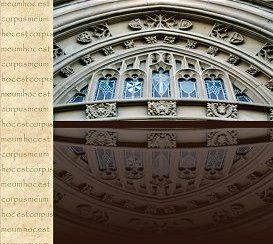Sacramental Letters should both inspire and give practical guidance to students, religious instructors and parish communities. Dealing with the theme of the sacramental from a Catholic perspective, the author provides key insights into the sacramental imagination as it pertains to (mostly) modern literature. She does not simply deal with the sacramental in a metaphorical way, but interprets these literary works in terms of the actual seven sacraments of the Church. She keeps jargon to a minimum, so that the book is accessible to the layperson, and explains well the key theological concepts for the non-specialist. The author does a great job in differentiating the Catholic and Protestant imaginations, yet in an ecumenical spirit that is sensitive to Protestant readers.
Sacramental Letters is impeccably orthodox and makes a strong case for the Catholic nature and significance of the works covered, from Camus to O'Connor, Hopkins to Merton, and Greene to Dillard. The author does a great job guiding the reader through the respective texts, for those familiar and unfamiliar with the cited works. This is not a book bogged down by scholarly apparatus; it is rather the work of an intelligent and faithful Catholic presenting us with new insights and a new way of interpreting literary works that are often perplexing and often misread. In a voice that resonates with the reader, the author takes these complex works and builds, chapter by chapter, upon the themes of the seven sacraments, making the reader feel as if they've been accompanied on a pilgrimage to a deeper appreciation of the sacraments and our place in the world.
Dr. James Felak, Professor, History Department
University of Washington
Nina Butorac's provocative new book, Sacramental Letters, is a scholarly expose' of her subject. She begins by identifying the recognizable elements which distinguish sacramental literature as an acknowledged genre. Ms. Butorac then proceeds to locate the origins of this genre in Thomas Aquinas' sacramental theology by way of its aesthetic kinship with Charles Baudelaire and the French Symbolist Movement of the late nineteenth century, and those who followed from that Catholic tradition. Drawing upon her years of teaching the subject, she selects representatives - poets and authors, some Roman Catholic, others secular - who exemplify the spiritual preoccupations of the sacramental imagination in modern literature of the western world.
Particularly praiseworthy is Ms. Butorac's analysis of Albert Camus' The Fall, a penetrating and refreshing treatment which sidesteps the standard contemporary labeling of this masterpiece as absurdist, or, in the narrowly bleak sense, existential. This is to mention but one of the wide variety of literary figures - from Gerard Manley Hopkins to Flannery O'Connor to Annie Dillard - who, in these pages, are elucidated by the light of their unique contributions to the genre. Sacramental Letters is a work of very high educational value. It is, as well, a profoundly inspirational reading experience.
Lawrence Carmignani, PhC. American Literature
University of Washington
Sacramental Letters is a beautifully written and extraordinarily helpful book. In this work we encounter great authors, some Catholic, some not, from Camus and Kafka to Merton, Dillard and O'Connor, all of whom see the world more deeply and truly than many of us can manage. Relying on the sacraments of the church, Nina Butorac directs us to see what they see, and in so doing encourages us to take steps toward retrieving a vivid, sacramental experience of the world that our secularized, disenchanted imagination has all but grayed out.
Jack Whelan, Instructor in Communications, Foster School of Business
University of Washington

 Alyosha.com
Alyosha.com
 Nina Butorac
Nina Butorac